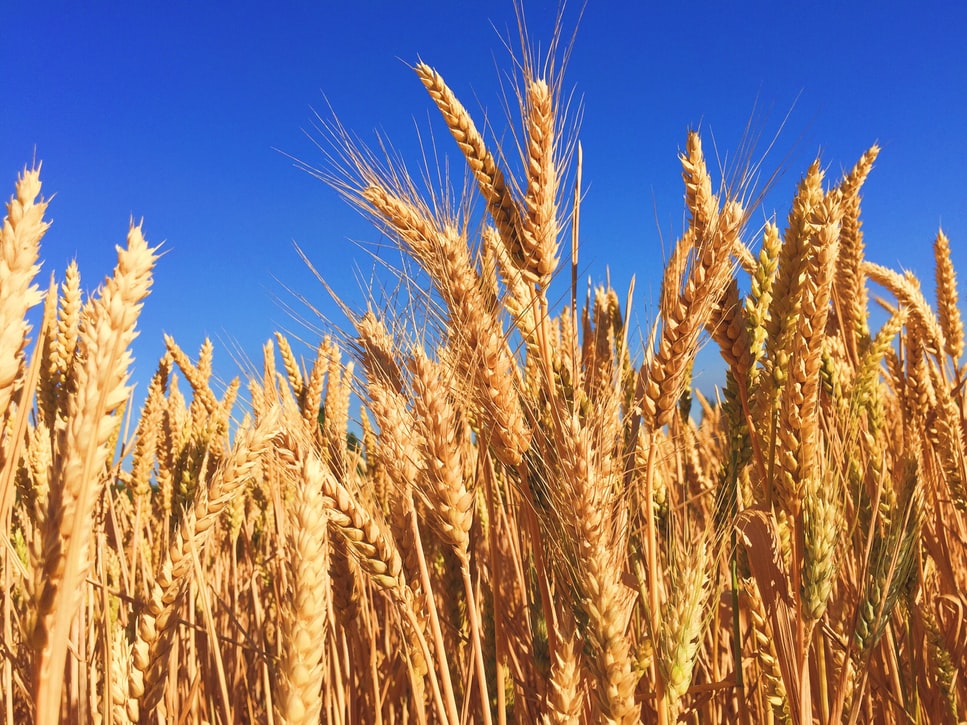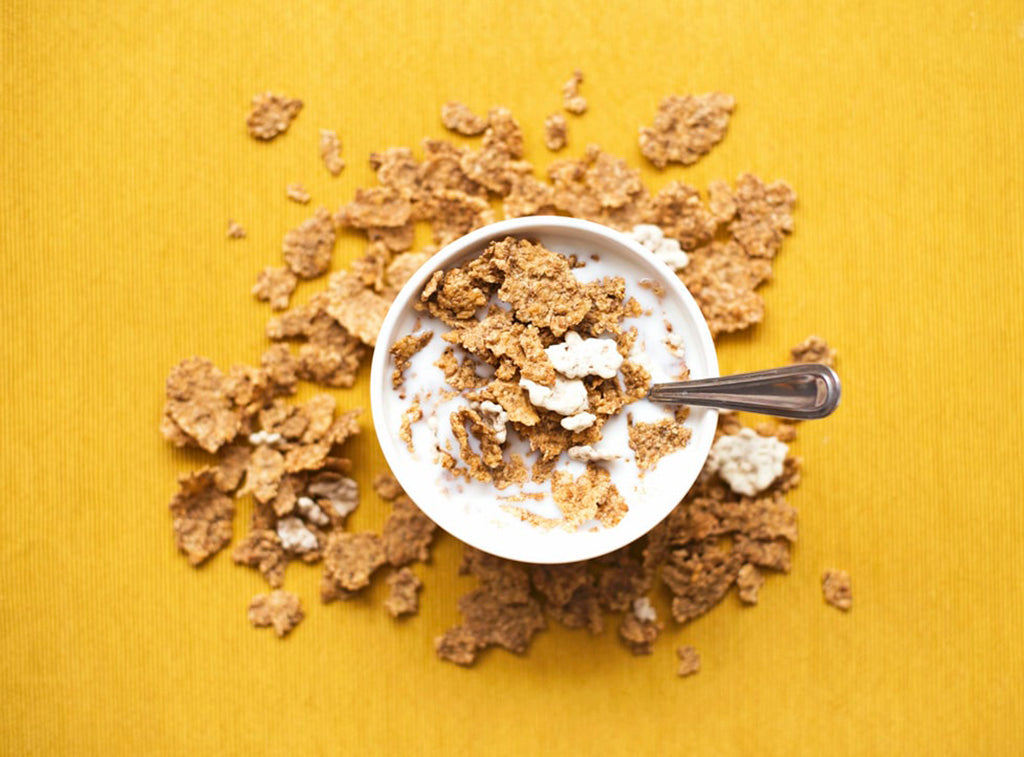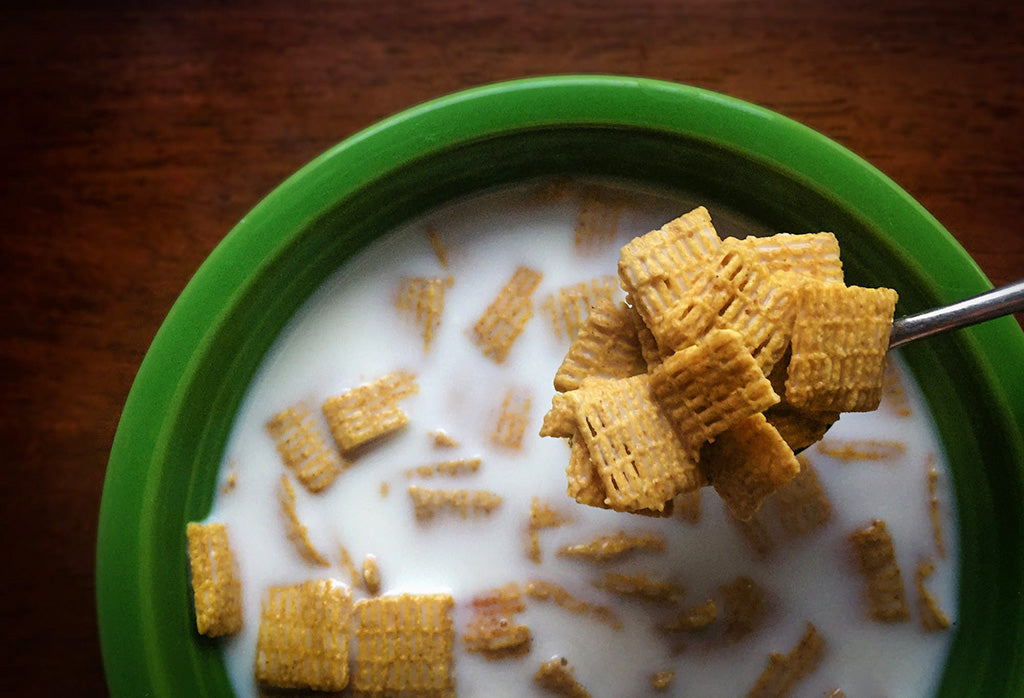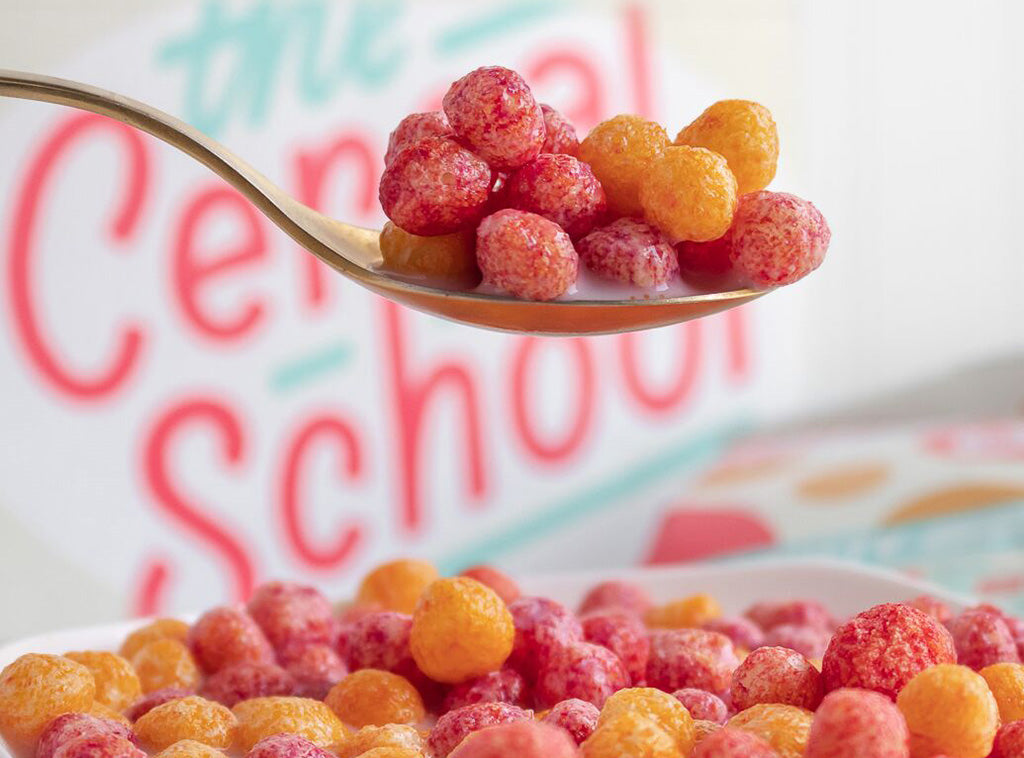
You love your morning bowl of cereal.
You may not look forward to your commute or the sound of your second snooze button, but you certainly look forward to your breakfast bowl.
But here’s another thing you love: You.
You love keeping yourself healthy, so you’ve been looking to make a few changes to your everyday routine. You emptied your cupboards of all questionable food with unidentifiable ingredients. You switched to organic produce. And now, in honor of the love you hold for your morning bowl, you’re on the hunt for a non-GMO cereal.
But what does non-GMO cereal entail? And where can you find it? All those questions are about to be answered, and your cereal bowl is about to be filled.
What Is Non-GMO Cereal?
Before we answer this question, let’s back up a second and ask one more: What exactly are GMOs?
GMO stands for genetically modified organisms, which are made by deliberately changing the genetic makeup of a plant or animal.
Here’s how GMO crops came to be: At one point, farmers began spraying their fields with pesticides (like Roundup) to keep insects (i.e. “pests”) away. Unfortunately, their plan backfired, as these chemical sprays killed their crops along with the insects. Therefore, scientists found a way to chemically alter the crops, so they wouldn’t be harmed if sprayed by pesticides.
Sounds like a pretty good deal, right? Not so fast.
There’s very little science showing the negative drawbacks of GMO crops, or how they could be harmful to human health. But, it’s important to note that the few studies conducted have been funded by the biotechnology companies that created GMOs in the first place.
Many groups, such as the Non-GMO Project and Earth Open Source, have slowly collected data connecting the dots between GMO crops and health risks. This includes the level of toxicity in GMO foods, and the potential they have to damage organs, cause allergic reactions, and produce negative reproductive effects.
More importantly, these groups believe consumers have a right to know if food contains GMOs. While not regulated by the USDA, the Non-GMO Project created its own verification system to help consumers make educated buying choices.
To become Non-GMO Project verified, a food must contain no GMOs or a minimal amount (less than 0.9%). Thus far, the Non-GMO Project has approved more than 1,600 “cereal and breakfast foods,” which includes 257 brands.
Why It’s So Hard to Find Non-GMO Cereals

Finding GMO-free products — not just cereals — can prove especially difficult. Since the GMO-free label is voluntary (read: not regulated by the USDA), some big brands have taken advantage of the practice.
For example, Monsanto — the world’s biggest maker of genetically modified seeds — hit headlines after criticizing General Mills.
As a PR stunt, General Mills claimed they would “remove GMO ingredients” from their original Cheerios. However, there were two problems: One, Cheerios is made from rolled oats, which never contained GMOs to begin with, and two, their beloved Honey Nut Cheerios still contained GMOs, which proved to be especially confusing to consumers.
So, what’s a cereal lover to do? Educate yourself on the ingredients and learn how to read labels.
High-Risk GMO Ingredients
Here’s why you should be wary about GMO cereals: Many “high-risk crops” are those that are known to be genetically modified.
Some of the most high-risk GMO crops include canola, corn, soy, and sugarbeet. And if that list is starting to sound like the side of your cereal box (such as corn starch, corn syrup, and some sweeteners), you’re right. Many of the most common ingredients listed within cereals today are also listed as high-risk GMO crops.
At Cereal School, our grain-free, gluten-free products are made with protein isolate, sunflower oil, tapioca fiber, and monk fruit. There’s no trace of corn or soy in sight, so you can rest easy that your favorite box — er, bag — of cereal is made without GMOs.
Can an Organic Cereal Contain GMOs?
Short answer: It shouldn’t.
Long answer: In the United States, a certified organic food cannot contain GMOs. However, things can get pretty dicey here. On the USDA website, it says that some “traces” of GMOs might not be in violation of the organic standard.
Plus, if you’re really trying to avoid GMOs, it’s important to understand nutrition labels. The term “organic” is a government-regulated term, while terms such as “all natural,” “real food,” and “natural food” are simply clever marketing ploys.
6 Non-GMO Cereal Brands

It can be pretty hard to find trusted non-GMO brands at the grocery store. The best thing you can do is educate yourself on which ingredients should be avoided and be aware of crafty marketing practices. To help you make an educated decision, here are six brands that contain a line of GMO-free breakfast cereals you may want to consider.
1. Kashi
Kashi has 92 products that are GMO-free, from their GO Cinnamon Crisp cereal to gluten-free waffles. And while the product line varies from granola bars, snacks, and energy bars, let’s stick to talking about their breakfast cereals for a bit. The 7 Whole Grain Flakes line, GO cereals (formerly known as GoLean), and Organic Promise cereals are all free of GMOs.
2. The Cereal School
At Cereal School, you’ll find that all four cereals are completely free of GMOs. Whether you choose Cocoa, Fruity, Cinnamon Bun, or Peanut Butter, all flavor varieties are free of corn and soy, two of the most at-risk GMO crops on the market. Plus, there are absolutely zero artificial ingredients and no sugar.
3. Cascadian Farms
All Cascian Farm products, including frozen fruits and veggies, granola bars, and cereals are organic (note: not 100% organic). This means their Ancient Grains granola, Buzz Crunch Honey Almond cereal, and Cinnamon Crunch cereal shouldn’t contain traces of GMOs in their food supply.
4. Barbara’s
Barbara’s has 23 GMO-free products under their umbrella, including the popular Puffins line of cereals including peanut butter, honey rice, multigrain, and original. You’ll also find their Brown Sugar, Organic Brown Rice Crisps, Organic Corn Flakes, and Organic Honest O’s Honey Nut (their version of Honey Nut Cheerios) are free of GMOs.
5. Nature’s Path
Nature’s Path has over 150 products that are GMO-free. This mainly includes their oatmeal, granola, and hot cereal varieties. Some of the more popular non-GMO products include steel cut oats, hemp hearts granola, pumpkin seed with flaxseed granola, and Qi’a Superfood Chia, Buckwheat & Hemp Topper.
6. Bear Naked
Bear Naked has 100 products that are GMO-free according to the Non-GMO Project. You’ll find a number of GMO-free foods under the brand’s umbrella, including (sugary) cereal options such as Oatmeal Cookie Chunk Granola, Pumpkin Spice Granola, and White Chocolate Macadamia Nut Premium Granola.
For a Trusted Non-GMO Cereal, Choose Cereal School

At Cereal School, we’re committed to making breakfast cereal without a trace of GMOs. Our cereals don’t contain high-risk crops like corn or soy, so you can rest assured that your morning bowl is GMO-free.
Plus, unlike many of the brands included on this list, Cereal School has a few other health benefits: Each serving contains 16 grams of protein, just one gram of carbs, and zero grams of sugar. (Seriously, no other cereal on this list can say that). Now you can continue enjoying your favorite breakfast food while taking care of your health, too.



